“One of my favourite players of all time is actually Australian, Mark Schwarzer,” says Saw Napoleon, goalkeeper for the Karen national football team. “When I was a kid, my dad used to get me the goalkeeper gloves that Schwarzer wore. I probably had about three pairs of them, they were my favourite.”
Like his hero Schwarzer, the now-retired six foot four former Australian national team goalkeeper, Napoleon is the first name on the team sheet for the newly established Karen Football Association.
Aspiring to fulfil the role of representatives of the Karen people, both still in Myanmar and in exile, they have been given a platform to do so through the Confederation of Independent Football Associations (CONIFA), the governing body for self-proclaimed nations and peoples not affiliated with established global international football confederation FIFA.
Most of the 58 members affiliated with CONIFA represent independence movements like Tibet, people in exile such as the Rohingya, or disputed territories such as North Cyprus, Somaliland and Iraqi Kurdistan. Other members include small Oceanic island nations lacking the facilities to be full FIFA members, such as Kiribati and Tuvalu.
Since 2018 that roster has included the Karen national football team, who fly the flag for those resettled abroad, stuck in refugee camps and those still struggling for self-determination within Myanmar.
The Karen people inhabited what is now-Myanmar two thousand years ago, travelling from Tibet and China to settle in the country’s eastern mountainous region, and throughout their recent history they have been embroiled in a struggle against the Burmese government for rights, land and self-determination.
Numerous Karen groups, the Karen National Liberation Army (KNLA) most prominent among them, and the Burmese military have been involved in armed conflict for more than 70 years. The Tatmadaw have faced accusations of rape, torture and genocide against the Karen people – including the razing of civilian villages in its frequent sweeps along the Thai border.
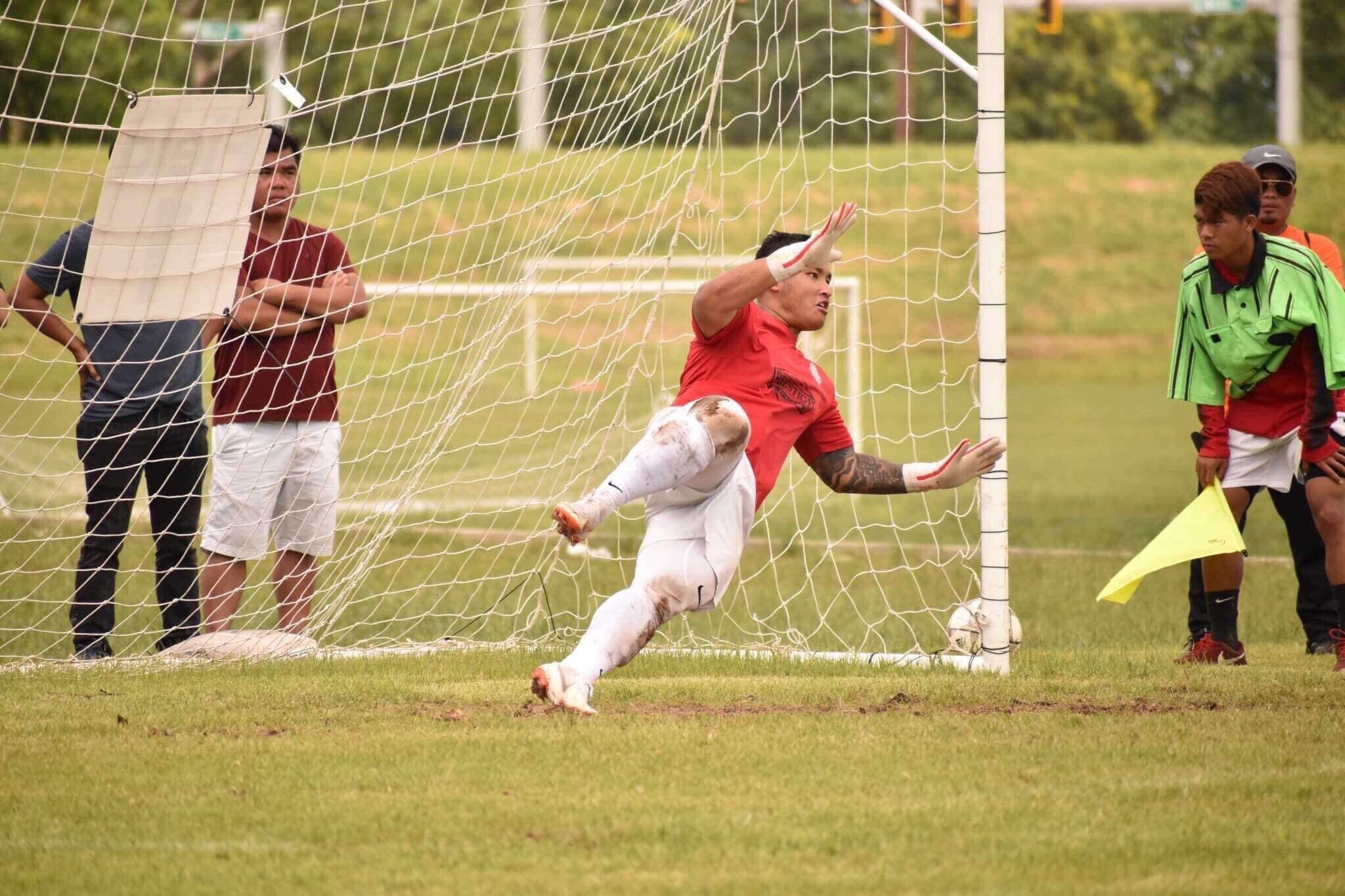
The decades-old clashes between the Tatmadaw and the KNLA continue to rumble on to this day, with the violence estimated to have displaced over 200,000 people in refugee camps in Thailand as well as thousands more internally – earning it the title of the world’s longest-running civil war and one of the world’s least reported refugee crises.
Life in the Thai camps remains difficult and dwindling funding and interest in the crisis as international donor priorities shift means refugees are increasingly having to support themselves while waiting for resettlement to another country – usually a timeline of several years.
Within this context, recreational activities like football have inevitably taken a backseat to politics, war and conflict in Karen communities at home and abroad over the decades. But Kyle Johnson, a football coach and digital marketing executive from Minnesota in the US is aiming to change that.
While not Karen himself, Johnson wanted to create a team to represent the large community based in the state’s capital, St Paul. According to the Karen Organization of Minnesota, over 17,000 Karen have resettled in the city since the early 2000s, the largest community in the United States.
“I first got involved through the women’s game and my aim was to try and get these girls more opportunities,” Johnson, founder of the Karen Football Association, told the Globe. “That’s how I got involved with the local community and really got to know the Karen through that.”
While coaching the girls’ team of a local high school, a news story about Tibet piqued his interest, and pointed him in the direction of CONIFA.
“There was this big story about the Tibet women’s football team and how they attempted to come to the US, but their visas were denied,” remembered Johnson, referring to the Chinese breakaway province that remains a heated source of contention for Beijing on the international stage. “That’s how I really first learned about CONIFA.”
“It got me thinking about things from a broader perspective,” Johnson continued. “I thought we could make some pretty big impact on a number of different fronts and it would be an amazing platform for the Karen community.”
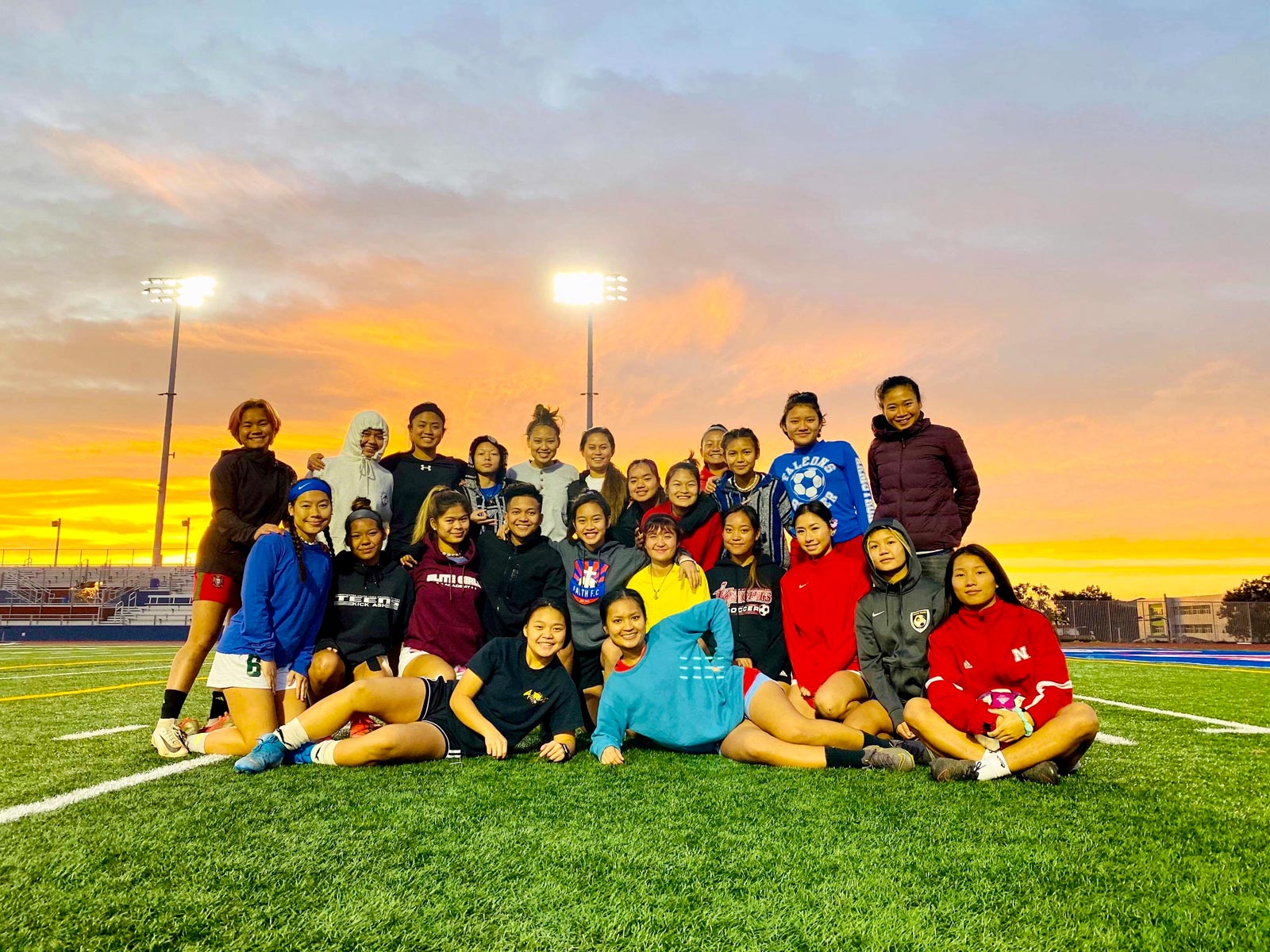

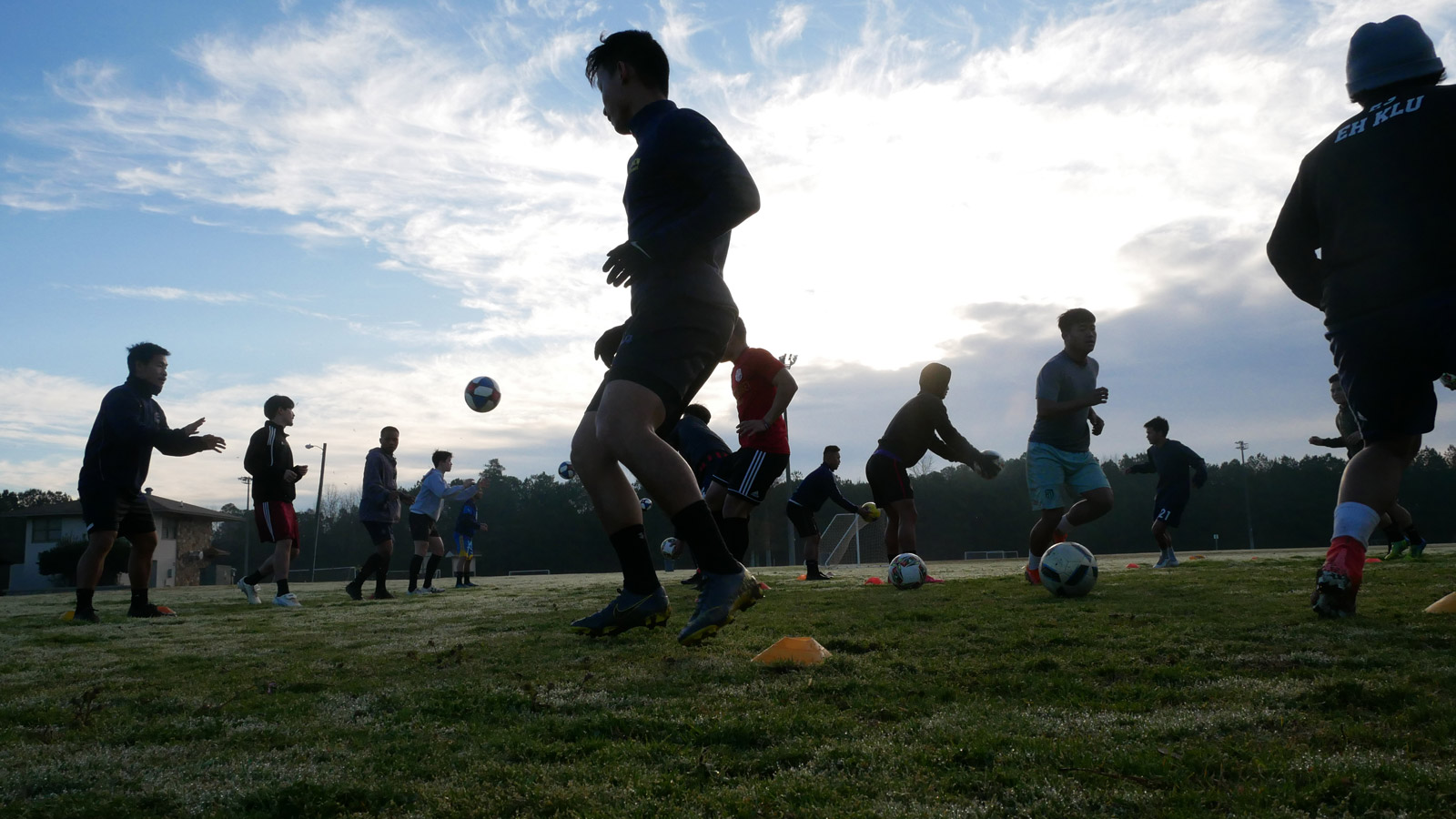
So in late-2018, on a whim, he applied for membership to CONIFA, not expecting to be successful.
A few months later, he received word that his application had been approved, and with that, the first team representing the Karen was formed, working out of St Paul.
Johnson spent the next four months laying operational foundations, creating branding for the team and sorting out finances. Word spread soon after, and he started to scout players across the US who would form the team’s first squad.
“Like with every national team, we’re in a difficult situation with the geographical spread of our players,” explained Johnson. And while the bulk of the current pool is based in Minnesota and the US, unlike other teams, a large portion of potential players are stuck in refugee camps on the Myanmar-Thai border.
The association is scoping out the possibility of including them as well. “Those are steps we are trying to take, because there are highly skilled players in those camps that deserve to represent the Karen community,” Johnson said.
For now, the national men and women teams are built from players in the US with, Johnson explained, about 95% having originally been refugees resettled from Thai camps.
Napoleon left the refugee camps in the Thai border town of Mae Sot to come over to the US with his family in 2000.
“The transition was really hard, because I didn’t know English, so I had to learn a fourth language when we arrived,” he said. He is now working at a bank in St Paul and recently welcomed a baby boy to his family.
Football, he said, was something he fell in love with as a boy. “The first time I remember watching it [football] was the 1998 World Cup and my dad was glued to the television,” recalled Napoleon about camp life. “Although, I only started taking it seriously when I got to school [in the US] – now it’s been a part of my life ever since.”
Tu Lor Eh Paw is the association’s treasurer, as well as a university student studying business. Born in Peh Plo Kee, Karen state, Paw lost her mother when she was two.
“I was born in 2000 in a really small village in Burma and when I was five-years-old my dad took some of my siblings to Mae La Oon refugee camp,” Paw explained. “Where we lived was not safe at all.”
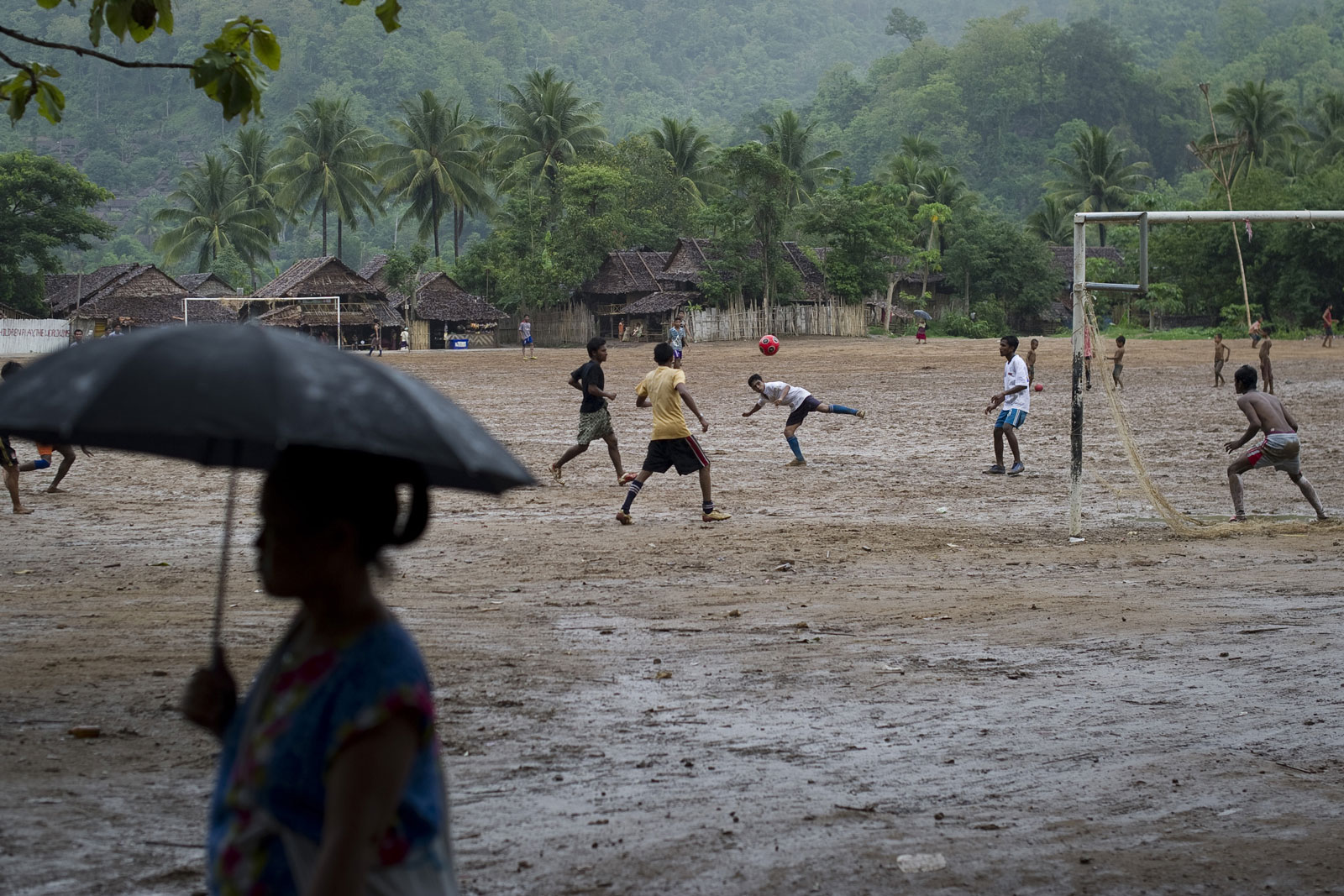
Karen refugee boys playing football inside Mae La refugee camp on the Thai-Myanmar border. Nicolas Asfouri/AFP. Below: A young boy in Mae La camp sports a Barcelona FC shirt. Christophe Archambault
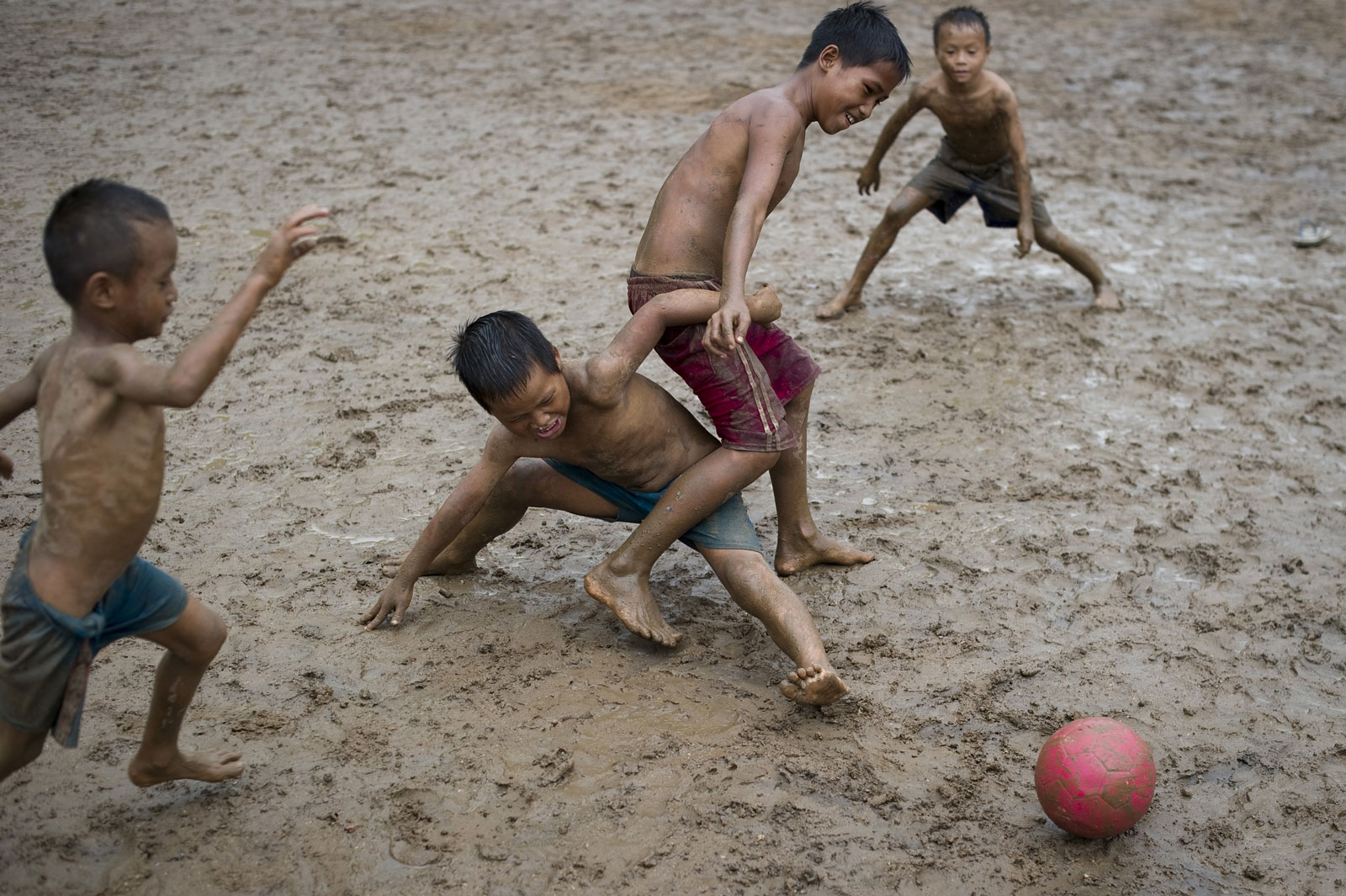
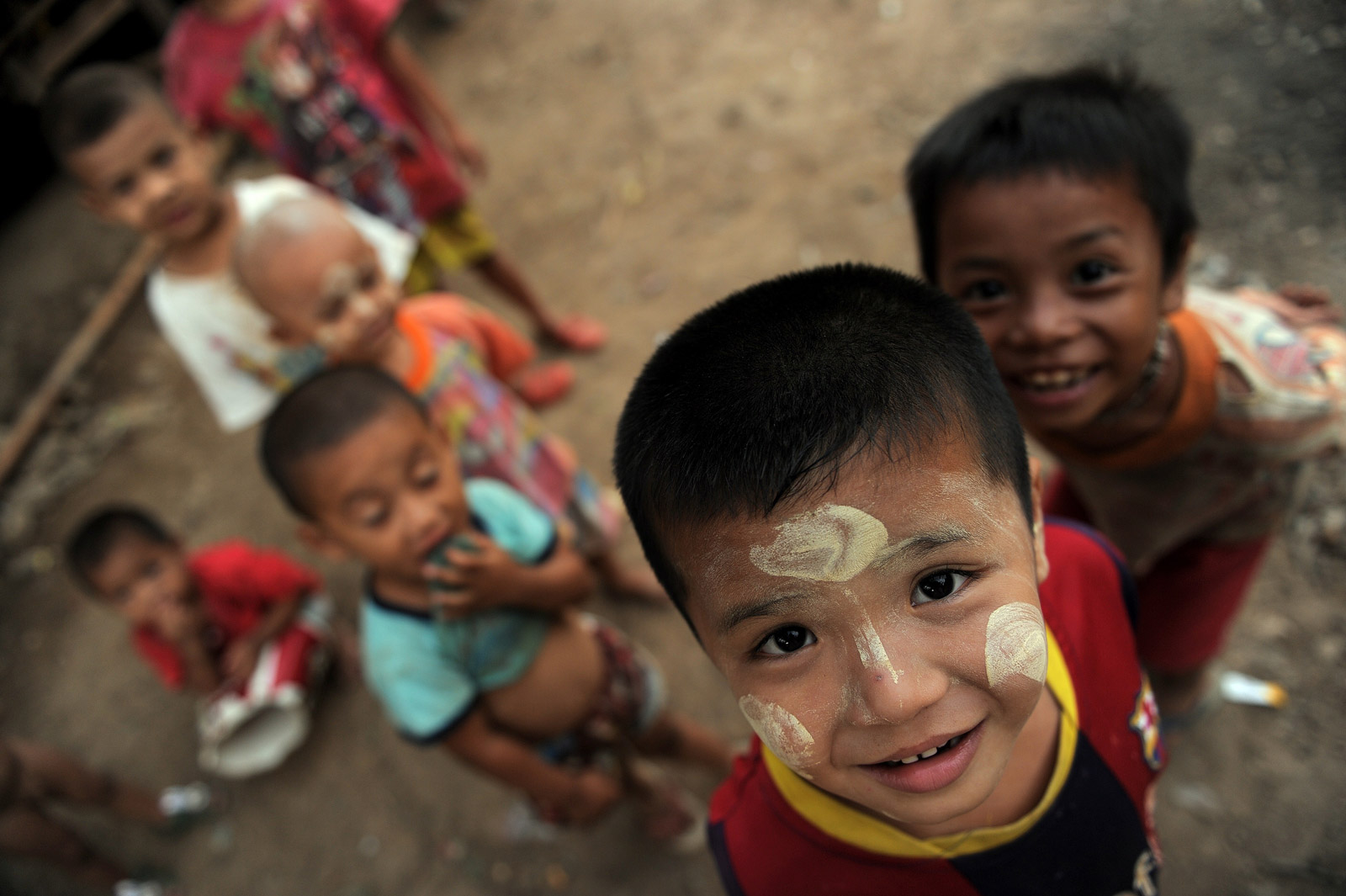
Paw stayed back with her aunt where she was home-schooled before joining her family at the camp in 2009. In 2011, eleven-year-old Paw, her three siblings and her father made the move from the refugee camps to resettle in St Paul. While football and volleyball were popular sports inside the camp, like Napoleon, it was not until she arrived in the US that Paw first fell in love with the beautiful game.
“We lived in a small apartment and I went outside one day and saw some kids, some of them Karen, who had also just resettled in the area,” remembered Paw. “They were involved in a football game and asked if I wanted to join. That was how I came to know about football and came to love it so much.”
Paw would continue to play it throughout school, meeting Johnson there and getting involved with the KFA soon after.
The first national team camp was held earlier this year in Atlanta, Georgia where the men’s team, captained by Napoleon, played their first official match against the semi-professional Georgia Revolution football club, which ended in a narrow 2-1 defeat.
“People were watching the game and sending messages of support from around the world,” explained Johnson. “The fact we got to that moment was a huge win itself.”
Support from the local Karen community during the camps was integral to its success. “The community let them stay in their homes, provided transport and even food,” said Johnson. “Those were huge expenses that were taken off our backs and it was fantastic to connect with the community.”
The association so far has been a success, and while Covid-19 has put training and matches on pause for now, Johnson is not downbeat.
“I’m a coach, naturally I always want us to win on the pitch,” he said. “But this is not always the only victory for our association. If we lose our matches, but grow as a team and create role models, that is what I care about the most.”
Football to the unconverted is often dismissed as an insignificant pastime, but to the Karen Football Association it is anything but. “This goes beyond football,” said Johnson. “This is about bettering people’s lives through sport.”
Being the first players to represent the Karen is a highly symbolic milestone for all involved, but also carries a great responsibility.
“There are really no other Karen women professional players – even very little Asian female players – outside of Asia, for kids to look up to,” explained Johnson. “They have now become the role models for future generations to look up to and go ‘that could be me!’”
This is embodied in the motto of the teams, I play for you, which signifies not just the sacrifices made during the 90 minutes on the pitch, but also those during the countless years of struggle and conflict off it.
“We are trying to represent the Karen people across the world and those persecuted in their own lands,” Paw explained. “We are playing to make the dreams of Karen children, who have grown up in such hardship, those who also have dreams of playing at a national level, come true.”
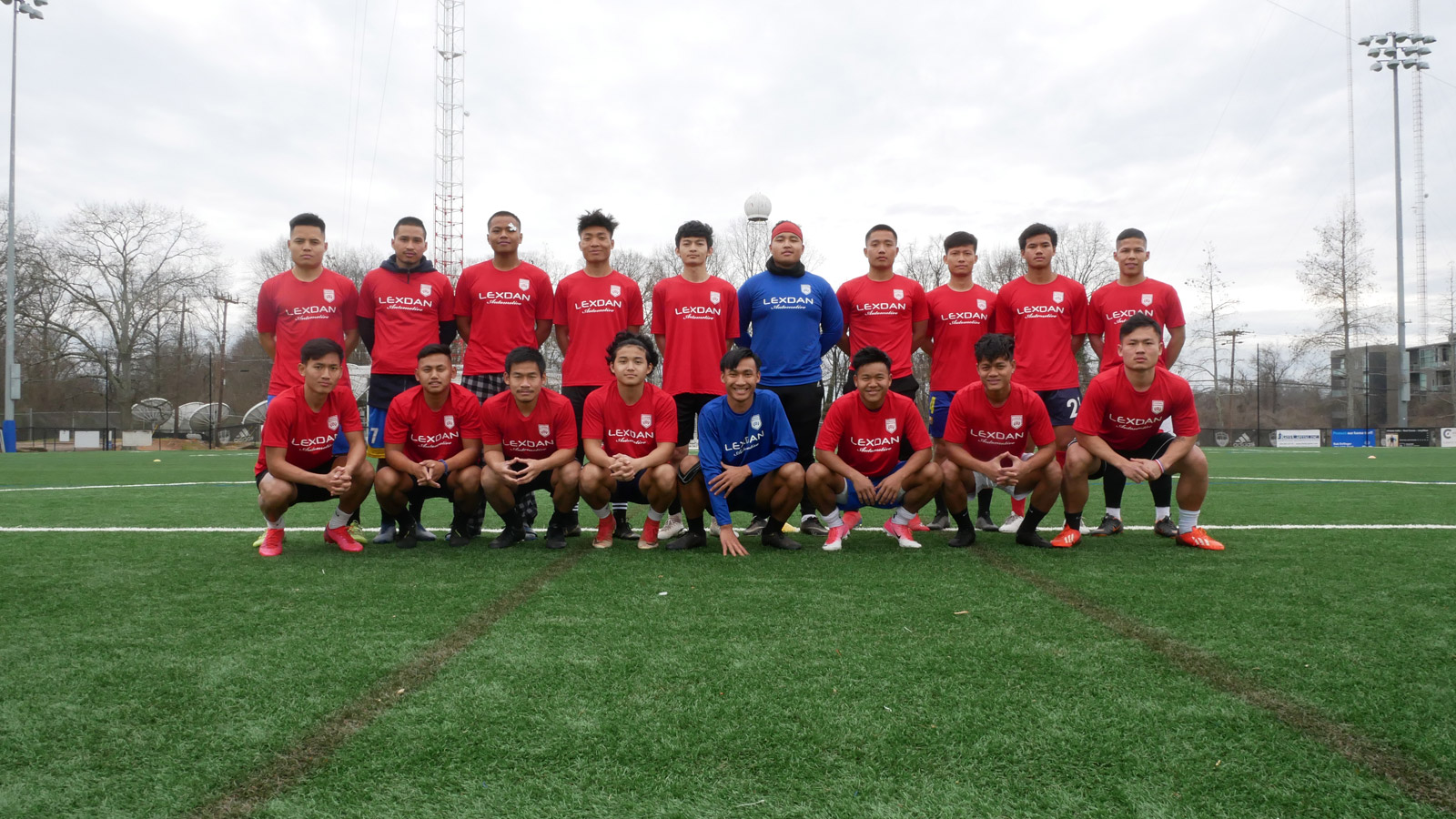
I now have my baby son who, when he gets older, if he wants to push himself and work hard, he now has a team to represent
Napoleon, goalkeeper and captain
Paw’s two young nieces still live in Myanmar, unable yet to find safety abroad.
“I play for my nieces – they are the people I want the world to know about,” she explained. “They mean so much to me and whenever I’m playing, I think – I’m playing for you – I’m playing to tell your stories.”
For Napoleon, the existence of a national team now carries more significance than ever, offering the chance for future generations of Karen living away from their homeland to connect with their cultural heritage.
“I now have my baby son who, when he gets older, if he wants to push himself and work hard, he now has a team to represent,” said Napoleon. “You always want the best for the next generation – you want them to surpass you, to do better than you did.”
The players dream of winning games and lifting silverware. But, already, their very existence is a victory. Small, in the scheme of things, but hugely significant to a Karen community persecuted at home, in exile abroad and divided from each other across the world.
“We have an opportunity,” said Johnson. “To be a voice that tells the stories of what the Karen have gone through and what is still happening now.”


